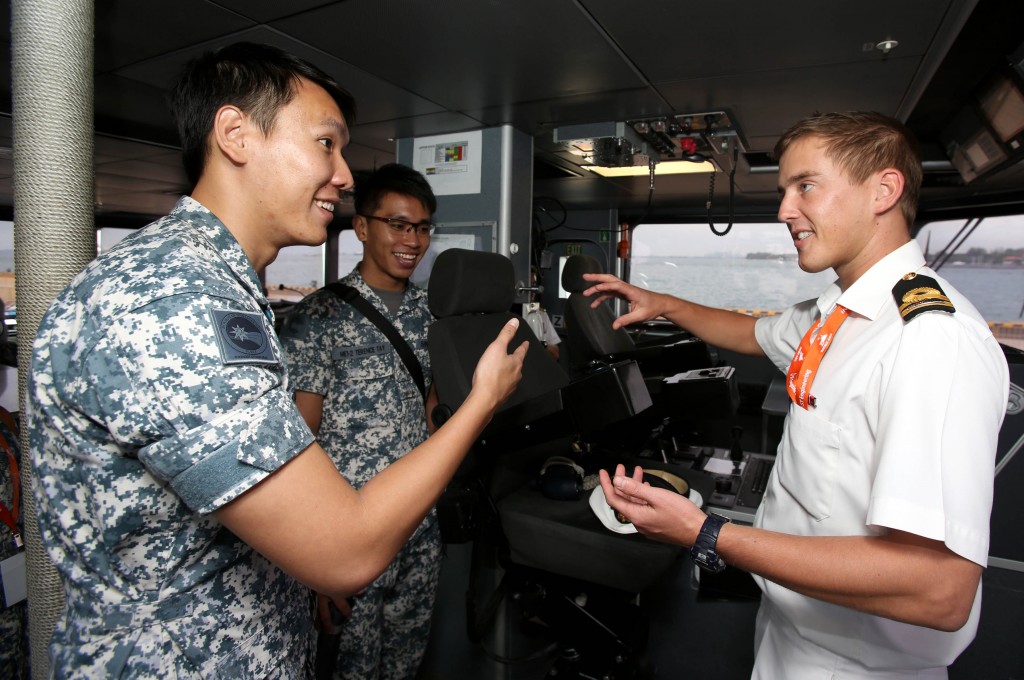 ASPI's just released Strategy Paper on Australia's regional defence diplomacy provides a useful snapshot of what Australia's defence engagement currently involves and where it might usefully head. It's not as strong, however, on where we've come from. Instead, it simply makes the case that 'we can no longer just keep on doing what we've been doing in the past'.
ASPI's just released Strategy Paper on Australia's regional defence diplomacy provides a useful snapshot of what Australia's defence engagement currently involves and where it might usefully head. It's not as strong, however, on where we've come from. Instead, it simply makes the case that 'we can no longer just keep on doing what we've been doing in the past'.
That might be true, but it also counts as an important oversight. Australia has been in the business of international defence engagement since at least the 1960s. But more importantly, there are some striking parallels between the present era and when Australian interest in defence engagement last really intensified during the late 1980s and early 1990s.
That was also a time of geostrategic change and uncertainty. The Cold War was ending, the Soviet Union was collapsing and there were fears of American drawdown from the region. To be sure, the nature of Asia's power shifts today are quite different, driven much more by dynamics within the region than by developments outside it. Yet then, as now, international defence engagement was seen as a component of Canberra's response to the strategic transformation taking place in Asia.
Second, it was also a time when Australia feared its potential marginalisation from burgeoning multilateral structures and approaches—such as Malaysian Prime Minister Mahathir's proposed East Asian Economic Caucus. The powerful idea of an East Asian Community has quietly been making a comeback since the Asian Financial Crisis of the late 1990s, which partly explains Australian eagerness to join groupings such as the East Asia Summit and to define the region in broader, more inclusive 'Indo-Pacific' terms.
The renewed emphasis on defence engagement also needs to be seen in this context, particularly as a growing number of countries are also upping their own engagement efforts. As the White Paper notes: 'seizing opportunities to build deeper partnerships will be important because competition for access and influence will be greater, and consideration of Australia's interests and views less assured'.
Third, the last time Australia got really interested in defence engagement coincided with a period when the defence budget was declining. Somewhat cynically, though not unfairly,
in a recent Security Challenges article Michael L'Estrange goes so far as to suggest that Australia's current enthusiasm for defence engagement is designed primarily to compensate for our shrinking defence budget. Is there a pattern here?
It's interesting also to look at what analysts were writing back in the nineties. In their seminal book,
Presumptive Engagement, Des Ball and Pauline Kerr argued that Australia's approach to defence engagement was unduly 'presumptive' in that it lacked 'a clear and coherent set of policies, balanced objectives, and means of implementation which are carefully tailored to the political and resources constraints'.
Almost two decades on, this sounds remarkably like one of the central conclusions to emerge from the new ASPI report:
At a time when we should be increasing our focus on regional defence engagement, the risks are that a tighter Defence budget may cause us to cut back on our engagement activities. It's important, therefore, that we have clear priorities for regional defence engagement ... and it's not clear how well all the relevant activities are coordinated and priorities are identified.
This observation isn't intended to disparage the report, which is thorough, authoritative and contains a significant number of useful suggestions. Rather, I think it's worth revisiting previous practices of Australian defence engagement to see what they might reveal for the present and future.
Associate Professor Brendan Taylor is Head of the Strategic and Defence Studies Centre at the Australian National University. Image courtesy of Defence.  Print This Post
Print This Post ASPI's just released Strategy Paper on Australia's regional defence diplomacy provides a useful snapshot of what Australia's defence engagement currently involves and where it might usefully head. It's not as strong, however, on where we've come from. Instead, it simply makes the case that 'we can no longer just keep on doing what we've been doing in the past'.
ASPI's just released Strategy Paper on Australia's regional defence diplomacy provides a useful snapshot of what Australia's defence engagement currently involves and where it might usefully head. It's not as strong, however, on where we've come from. Instead, it simply makes the case that 'we can no longer just keep on doing what we've been doing in the past'.